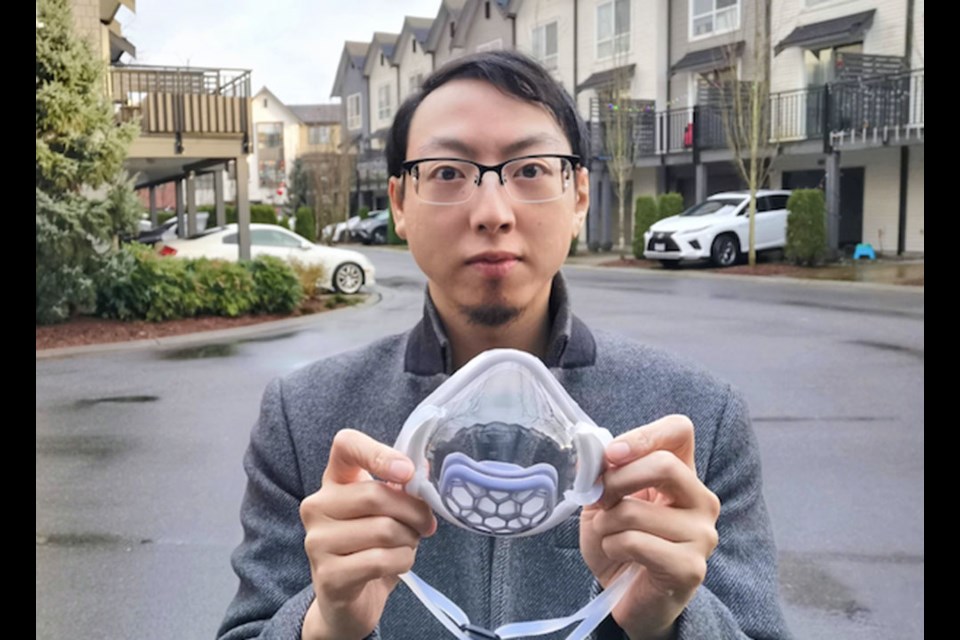Yat Li has a lovely voice.
The warmth of his tone, the way he speaks and his compassion for others makes you want to listen to his story.
But the 31-year-old marketing and communications professional wasn’t always a talkative man.
There was a time when Li wouldn’t speak and, as a youth attending Coquitlam elementary, middle and Pinetree secondary schools, he mostly hid behind a mop of straight, black hair.
Born with a deformity of his outer ears, called Microtia, Li struggled with hearing loss and being understood because of related speech difficulties. “I was known as the kid with the long hair,” recalls Li, who now lives in Port Coquitlam and works for the Wavefront Centre for Communication Accessibility.
In class, his teachers would sometimes ask another student to repeat his answers during oral questioning and Li was embarrassed about his condition that required him to wear prosthesis ears that were large to accommodate a special hearing aid.
“They were gigantic,” Li recalls, noting each day he had to put them on with glue. His hair covered the problem but his self-esteem was low although gradually he made some close friends at school.
Still, Li was 12 before he could hear sounds properly thanks to the surgical implantation of a bone-anchored hearing system. He still wears an upgraded version of the technology, which is now bluetooth enabled, and remembers the day when the system that sends sounds through the skull enabled him to hear birds and road noises that others take for granted.
“I could hear road noises. I could hear wind. I could hear leaves rustling. I asked my parents, ‘What are these sounds?’”
Born in Hong Kong, and barred from kindergarten there until he came to Canada, Li has learned the hard way what it’s like to be different.
With his job at Wavefront, Li is able to help others with hearing loss and one big change he’d like to see is more people wearing clear face masks while mouth and nose coverings are required to reduce the spread of COVID-19.
With fabric face coverings, “You miss the nuance,” Li explains. “By removing these expressions we are removing part of the language that is the primary language for this group and we are adding those barriers,” said Li.
Clear face masks enhance communication and may be a boon even for those who suffer only slight hearing loss and rely on lip reading. He recommends them for the health care profession, retail stores and anyone who works with the public.
His own life experience shows how tolerance and understanding can build bridges.
Li credits resource teachers in SD43 for putting in the effort him improve his communication, although he didn’t appreciate their work at the time.
Now, he says, “It was the footprints of who I am today,” and calls on everyone to be understanding and find a way to support others especially in these difficult times.
Clear masks are one way to promote understanding and they are available to purchase at the Wavefront Centre. Li said he worked with a 3D printing company to come up with a product that works well, contains a filter and is easy to clean.
"Especially now with the crackdown for safety, masks are important but we need to be able communicate," says Li. "When was the last time you saw someone's mouth?"



